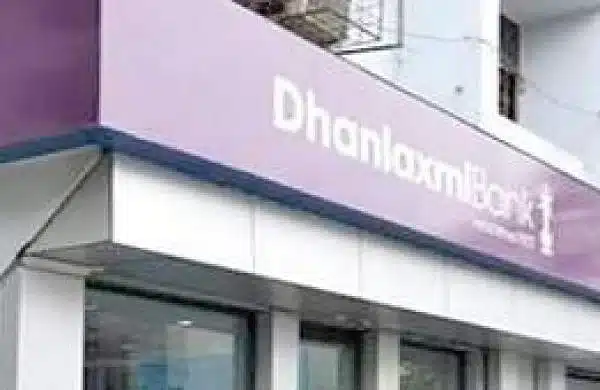In a new twist to the battle between shareholders and management of Dhanlaxmi Bank, the Kerala High Court on Tuesday ruled in favour of the bank on the issue of writ petitions filed by four individuals demanding Board positions.
In March of this year, the high court stopped the bank from holding an annual general meeting for the appointment of directors until the legal issues are resolved. In a new twist to the battle, the Kerala High Court ruled in favour of the bank on the issue of writ petitions filed.
The petitioners were P K Vijayakumar, K N Madhusoodanan, P Mohanan, and Prakash D L. The bank rejected their applications for Board positions last year. The petition was filed against Dhanlaxmi Bank, the Board of Directors, and the Reserve Bank of India (RBI).
The bank was prevented from holding an annual general meeting to elect directors in March while the legal issues were resolved. Sources claim that the court stated that the petitions could not be maintained.
According to a source, the petitioners have the option of appealing this judgment to the Supreme Court, civil courts, or NCLT. C K Gopinathan, a former director of Catholic Syrian Bank, holds 10% equity on the bank’s Board.
J. K. Sivan, chief executive officer; independent director, G Rajagopalan Nair, who has extensive banking experience and is an authority on fintech; and the two nominees for RBI, Jayakumar Yarasi and D K Kashyap.
A Division Bench of the Kerala High Court upheld Dhanlaxmi Bank’s appeal against four petitioners’ writ petitions, four of whom are also shareholders of the bank: KN Madhusoodanan, P Mohanan, PK Vijayakumar, and Prakash DL.
When their reappointment to the Board did not occur in 2021, they appealed the decision to the Kerala High Court, where a single-member bench first heard their case. The bank challenged the verdict when it came out in favour of the shareholders, and the two-member division bench has now agreed with Dhanlaxmi Bank’s position.
The court has upheld that shareholders’ writ petitions cannot be maintained, stating that candidates for board positions must pass the Reserve Bank of India’s fit and proper conditions. The favourable verdict paves the way for the bank to proceed with the rights issue of 131 crore rupees planned for June.
The bank is expected to file caveats with the Supreme Court to prevent shareholders from filing further appeals on the matter. A person who is aware of the situation stated, “Vacant positions on the board will be filled as a first step, including that of a woman director.”
The rights issue will be approved by the Board when there is a quorum, and the bank plans to contact the Sebi to speed things up. On October 17, the business line reported that the RBI had increased its oversight of the bank. The bank may be exempt from stringent surveillance if the capital raise occurs within a reasonable time frame. A person who is aware of the situation stated, “However, it is still too soon to say that the position at Dhanlaxmi Bank is comfortable.”
In the meantime, the bank’s shareholders have requested an extraordinary general meeting on November 12. Authorizing shareholder CK Gopinathan to reach a settlement with the petitioners is on the meeting’s agenda. There may not be a need for this agenda now that the verdict is in the bank’s favour. Additionally, the shareholders want JK Shivan, the bank’s MD and CEO, to lose his authority. The previous time the EGM was called for, on June 12, it didn’t happen.
The Thrissur-based bank’s nine shareholders had called for an extraordinary general meeting (EGM) to be held on November 12 in an effort to limit J K Shivan’s spending power. The court’s decision comes amid this call.
The nine shareholders own approximately 13% of the company’s shares. Ravindran Pillai, the head of R P Group, is in charge of the group. He owns a 9.99 per cent stake in the business. With the exception of statutory payments like salaries and wages and central and state taxes, shareholders want the CEO’s authority over capital and revenue expenditure limited.
In addition, it stated that the powers would remain suspended until the bank’s board of directors, audit committee, and any other mandatory committees were reinstated and RBI and Sebi guidelines were followed. The shareholders were also seeking a resolution to their legal dispute with some shareholders regarding board positions through a separate resolution.
Over the course of the previous five to six years, a number of the bank’s most senior executives had left due to disagreements between shareholders and management. Suseela Menon, who left as an independent director in May, Sunil Gurbaxani, who left as CEO in October 2020, G Subramonia Iyer, who left as a part-time chairman in December 2021, Sajeev Krishnan, who left as an independent director and part-time chairman in June 2020, and T Latha, who left as MD and CEO in October 2019.












